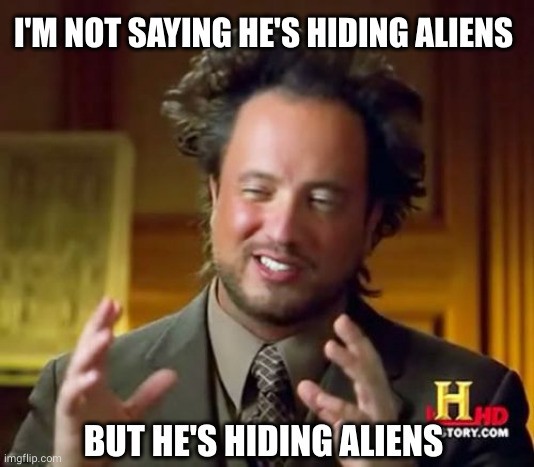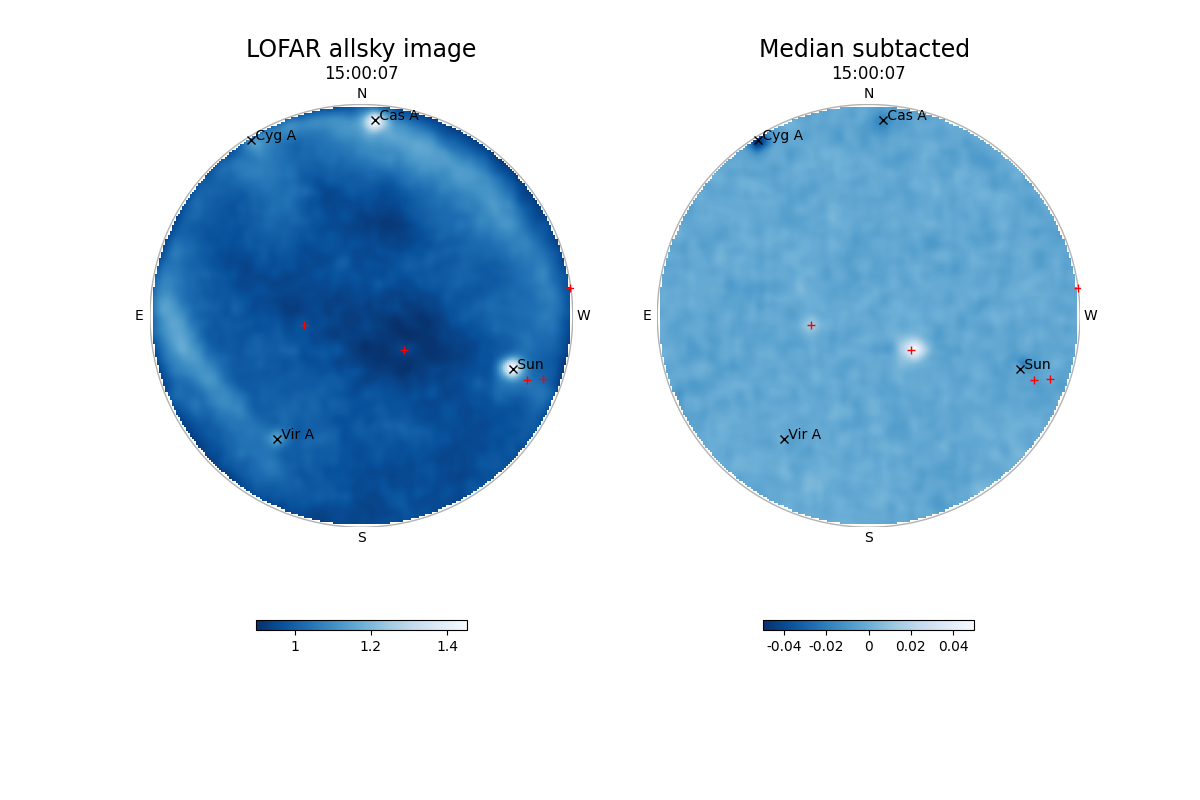- cross-posted to:
- science@hexbear.net
- brainworms@lemm.ee
- cross-posted to:
- science@hexbear.net
- brainworms@lemm.ee
Observations with the LOFAR (Low Frequency Array) radio telescope last year showed that first generation Starlink satellites emit unintended radio waves that can hinder astronomical observations. New observations with the LOFAR radio telescope, the biggest radio telescope on Earth observing at low frequencies, have shown that the second generation ’V2-mini’ Starlink satellites emit up to 32 times brighter unintended radio waves than satellites from the previous generation, potentially blinding radio telescopes and crippling vital research of the Universe.
Obviously this is a problem for radio astronomers. I keep hoping we’ll build the proposed Lunar Crater Telescope so we can have a truly silent view of the universe.
And then let people move there to get away from Elon.
And consequently create radio chatter and disturb the Lunar Crater Telescope :(
I’ll be very quiet. Promise.
How are you going to shit post on the internet with no wifi, then? 2.4Ghz and 5Ghz are loud af
Ethernet cable.
Where is that ethernet cable getting internet from on the moon without there being a loud as fuck antenna?
The ether.
802.3
Ethernet protocol can’t reach the earth from the moon without there being a loud af antenna on either side
Fiber line to the bright side of the moon; transceiver there.
I WONT
Nah. Move him there, alone, forever.
And how would they get there?
Lunar space elevator obviously.
I would also consider a proposal to install elon musk at that location.
Elon is a nazi but this was always bound to happen as we expand our presence in space.
Imagine the radio signature of any of the hundreds of orbital megastructures in sci fi.
this was always bound to happen as we expand our presence in space.
Yes and no — from a different article:
Radiation associated with Starlink satellites was detected at observing frequencies between 110 and 188 MHz, which is well below the 10.7- 12.7 GHz radio frequencies used for the downlink communication signals.
(The original article said 5M radiation, which should be around 60MHz.)
So Starlink is emitting RF in spectrum where they shouldn’t, which is avoidable, but takes effort.
My guess, and I could be wrong, is that this could be related to something other than the radio(s), such as switching power supplies finding opportunistic structures from which to radiate.
Starlink seems like a genuinely interesting and useful technology, in some ways.
But it also seems like it might not be worth having.
I’m thinking they might need to be deorbited, but I’m not confident in that yet. It sounds like it might be fixable in a new generation of Internet constellation satellites.
Idk how long the issue should be tolerated to wait for that, though. And while Starlink has a good amount of customers this kind of Internet is genuinely useful for, it’s still not a lot compared to all the other internet services.
Maybe Starlink deorbiting should come along with an expansion of the traditional communications network. But maybe it would be extremely expensive to reach Starlink’s customers with towers or cables.
China is putting up their own equivalent system. Terrestrial radio telescopes are fucked.
Time for a moon base.
Some of Musk’s bootlickers have said to me, offline in person, that the le epic Starlink debris in space fucking with astronomy (as it has for a while now) “will only encourage the exodus off planet” followed by the PR spiel about “humans must become interplanetary species.”
May as well say that the cradle must be burned with the baby in it so the baby is encouraged to compete in Olympic track and field.
All those sci-fi movies about human beings acting as an interplanetary infection only to find retribution at the hands (paws? Claws? Appendages) of an eldritch creature taught us nothing 😔
Looking forward to when Europe and China also launch their own satellite internet constellations

Loved that manga, I should re-read it and try watching the show again.
Time for astronomy to destroy Elon Musk

Nah, that’s a fucking euphemism, we need a better word to describe it
But people are still shilling for starlink. I was always downvoted for mentioning the kessler syndrome or light pollution. All for progress, I guess we really need that fast internet in the middle of the atlantic.
People down voting you for bringing up Kessler syndrome were correct to do so. It’s a complete non-issue for starlink-sized objects at that altitude.
Light pollution is a more reasonable objection, and the effects on the upper atmosphere of all those satellites burning up would be as well, but not Kessler syndrome
It’s a complete non-issue for starlink-sized objects at that altitude.
Yeah. The mass and altitude are too low.
The thing with Kessler Syndrome is that collisions create debris, which cascades with more collisions, until there’s too much debris. But each collision actually results in the loss of kinetic energy or gravitational potential energy overall, so that the subsequent pieces are less energetic and/or less massive. Start with enough mass and enough altitude, and you’ve got a real problem where it can cascade many, many times. But with smaller objects at low altitude, and there’s just not enough energy to cause a runaway reaction.
Fellow dark sky supporter. Between all the led billboards, sprawl, and all the attempts at education failing… I doubt our children will have any view of the stars at all.
Unless there’s a hurricane that’s wipes out power… Stargazing was excellent for a few nights then.
Can we just do things the conservative way and lay more wire?
And where that doesn’t help, use packet radio links?
And where that doesn’t help, use mesh networks?
Why do they have to do it all the ugly and pretentious way?
If he could he would arrange the sattelites to spell his name on the sky
It is the moral imperative of all living humans to strive to murder Elon must as soon as possible
Still love the truck tho
Lmao
Any chance the Starlink satellites could be built to double as a sort of large-array telescope themselves, to compensate for the ground-based interference?
From my brief look into the topic, interferometry tech is not quite there yet, but might be in the next few decades. Interferometry is more difficult with shorter wavelengths.
What’s more likely to happen is Starship’s will be launched where the entire ship becomes the telescope, and then we’ll have arrays of these much further away.
Not sure if it’s the same for radio, but for optical that means we can get a 9 meter mirror up there without any expensive folding mechanism, and who knows how big if we fold them as the fairing is not only wider but also longer.
Cost would go from billions to hundreds of millions or less. James Webb cost 10b.
The James Webb folding mirror is 6.5m and was folded into a 4.5m fairing…

I have not heard a car for a few hours. Not even the rumble of traffic in the distance and I can see the night sky without light pollution. It is a very privileged experience in some ways and while it has its advantages we are measurably disadvantaged in most human development metrics: health, education, income etc compared to people living in urban areas of our own country. The disadvantage is real and pops up everywhere from cancer survivability to suicide rates. Equitable internet access is more important than many people appreciate. If we can improve services to everyone AND protect radio astronomy that is a worthy goal.
Fiber is dirty cheap, just saying. If you consider externalities, much cheaper than starlink. You just want us to subsidise your lifestyle.
Maybe they are farmers? Apparently they have to live quote remote.
I have family that use it as there is nothing else available
Edit: fiber is cheap, but the land and labour required is not.
How does fiber being cheap help them if no ISP is willing to dig miles and miles of trenches to lay it and connect to their home? I live in the middle of suburbia and don’t have access to fiber.
Your comment about subsidizing their lifestyle doesn’t really make sense. What are you subsidizing exactly? This tech is also useful in poorer countries that don’t have the infrastructure at all.









